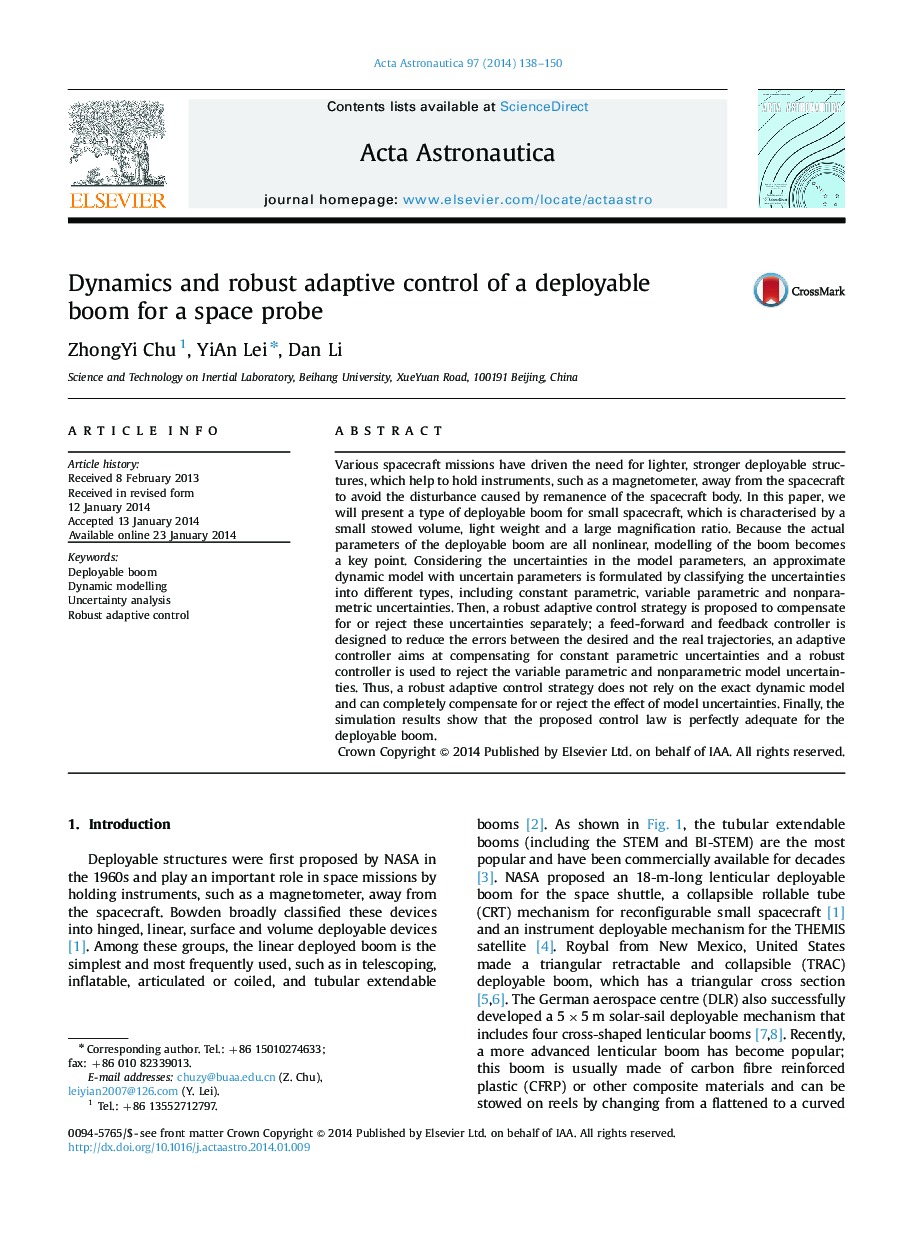| Article ID | Journal | Published Year | Pages | File Type |
|---|---|---|---|---|
| 1714754 | Acta Astronautica | 2014 | 13 Pages |
•We build a dynamic model with different types of uncertainties for the boom.•We design a robust adaptive control strategy, which does not rely on exact model.•The control strategy can compensate or reject the effect of model uncertainties.
Various spacecraft missions have driven the need for lighter, stronger deployable structures, which help to hold instruments, such as a magnetometer, away from the spacecraft to avoid the disturbance caused by remanence of the spacecraft body. In this paper, we will present a type of deployable boom for small spacecraft, which is characterised by a small stowed volume, light weight and a large magnification ratio. Because the actual parameters of the deployable boom are all nonlinear, modelling of the boom becomes a key point. Considering the uncertainties in the model parameters, an approximate dynamic model with uncertain parameters is formulated by classifying the uncertainties into different types, including constant parametric, variable parametric and nonparametric uncertainties. Then, a robust adaptive control strategy is proposed to compensate for or reject these uncertainties separately; a feed-forward and feedback controller is designed to reduce the errors between the desired and the real trajectories, an adaptive controller aims at compensating for constant parametric uncertainties and a robust controller is used to reject the variable parametric and nonparametric model uncertainties. Thus, a robust adaptive control strategy does not rely on the exact dynamic model and can completely compensate for or reject the effect of model uncertainties. Finally, the simulation results show that the proposed control law is perfectly adequate for the deployable boom.
